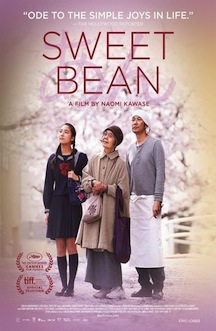Directed by: Cesar Augusto Acevedo
Country: Colombia / other
Coming from Colombia and deserving special attention worldwide, “Land and Shade” was distinguished with 4 prestigious awards at Cannes (Golden Camera, France 4 Visionary Award, SACD Award, Grand Golden Rail) and also conquered other trophies in Mumbai, Thessaloniki, and San Sebastian. I must state that it justified all of them.
The writer/director, Cesar Augusto Acevedo, did a staggering work and is already marked as the next man to watch out due to this astounding debut feature.
The incisive drama gradually attains high emotional levels at the same time that catches the viewer with its powerful, well-guided storyline and striking imagery. Joining the celebrated Ciro Guerra, who has been the summit of the Colombian modern cinema with gems such as “The Wind Journeys” and “Embrace of the Serpent”, Mr. Acevedo assures a place in the podium of the country’s cinematic creators, together with William Vega, artisan of another outstanding debut, “La Sirga”.
Don Alfonso (Haimer Leal), an old local farmer, returns to the secluded land he had abandoned many years ago when he was told it would be gradually discontinued of its landscape and factories to be turned into a huge sugar cane plantation. After 17 years, he agreed to go back in order to take care of his dying son, Gerardo (Edison Raigosa), a former sugar cane worker who has trouble breathing due to the continuous inhalation of dust and ashes along the years, consequence of the daily burn of the fields, which is a regular practice of the harvesting.
Besides his bedridden son, Alfonso meets his sweet 6-year-old grandson, Manuel (Felipe Cárdenas), and his sympathetic daughter-in-law, Esperanza (Marleyda Soto), and re-encounters his embittered ex-wife, Alicia (Hilda Ruiz), who keeps stubbornly refusing to leave the property she was able to save. In a cold way, she gives Alfonso all the instructions about the tasks to perform in her absence. While he’ll stay home cooking, cleaning, washing, and keeping an eye in Gerardo and Manuel, Alicia and Esperanza are going to the fields to work and bring some money home. This is an extremely tiresome and underpaid job, which clearly starts exhausting the women.
Realistic and constructive, “Land and Shade”, is made of dualities and doubts.
It’s simultaneously sad and vitalizing, portraying the dim indoors as gloomy and suffocating while some outdoor scenes, regardless the real circumstances, often pulse with light, a kite, and chirping birds. The doubts had to do with the choices of each character. Everyone ponders: staying or leaving? That’s the question.
To balance the agony, sacrifice, and misery of this broken family suddenly united by an imminent death, the film counterpoints with solidarity, humanity, and forgiveness.
This is one of the most intense movies I’ve seen lately, and both director and cast consciously and confidently paddle toward the right direction, escorting the film to a triumphant realm.








































